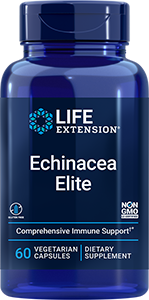
Newsletter
Newsletter
Testosterone Therapy Does Not Increase Incidence of Heart Attack, Stroke, According to New England Journal of Medicine Study

A study reported in the July 13, 2023, issue of the New England Journal of Medicine found that men receiving testosterone HRT and a placebo group had a comparable incidence of major cardiovascular events during a 22-month period.1
The randomized, double-blind trial included men between the ages of 45 and 80 years with low testosterone levels who had preexisting cardiovascular disease or had a high risk of the disease. A gel containing testosterone was applied daily by 2,596 men and 2,602 men received a placebo gel.
Cardiovascular events—which included nonfatal heart attacks and strokes as well as death from cardiovascular causes—impacted 7% of the men who received testosterone and 7.3% of the placebo group.
Deaths from cardiovascular causes were 16% lower and deaths from any cause were 2% lower among men who received testosterone compared to the placebo. Some of the other results were mixed, though: pulmonary embolism (blood clot in a lung) occurred among 0.9% of men who received testosterone and 0.5% of the placebo group, atrial fibrillation (a type of abnormal heart rhythm) occurred among 3.5% of the testosterone group and 2.4% of the placebo group, and acute kidney injury was observed among 2.3% and 1.5% of the testosterone and placebo groups, respectively.
The authors noted that a meta-analysis published in The Lancet Healthy Longevity failed to find an association between testosterone use and the risk of venous thromboembolism (blood clots in the veins), and that an association between testosterone therapy and a decrease in the incidence of atrial fibrillation was revealed by another study.
The findings may offer some comfort to men considering HRT who were concerned about a possible elevated risk of heart disease. “Controlled trials have shown that the use of testosterone in older men improves sexual function, increases volumetric and areal bone mineral density, corrects unexplained anemia, and moderately reduces depressive symptoms,” A. M. Lincoff and colleagues wrote.
Products
Apply What You’ve Learned: Testosterone
- Testosterone is a sex hormone made by men and, in lesser amounts, by women. Testosterone is vital for normal male sexual development and function. Levels of the hormone decline in both men and women during aging. Obesity, diabetes and other factors are also associated with lower-than-normal testosterone levels in men.2
- Symptoms of low testosterone include decreased sexual desire and activity, erectile dysfunction, low energy and mood swings.3 Regular blood testing of testosterone and other hormone levels is advisable to determine whether testosterone replacement could be beneficial and to guide the amount of testosterone administered.
- Forms of testosterone replacement therapy include intramuscular injections, transdermal gels and patches, orally administered capsules or lozenges, subdermal implants (pellets) and nasal formulas. A health care provider can help determine whether an individual is an appropriate candidate for testosterone replacement and which testosterone product to prescribe.
- Nonprescription options to support healthy male hormone balance include pomegranate, cacao seed, DHEA and pregnenolone.4-6
References
- Lincoff AM et al. N Engl J Med. 2023 Jul 13;389(2):107-117.
- Dhindsa S et al. Diabetes Care. 2018 Jul;41(7):1516-1525.
- García-Cruz E et al. Actas Urol Esp (Engl Ed). 2020 Jun;44(5):294-300.
- Sreeramaneni PGA et al. J Diet Suppl. 2023;20(3):411-427.
- Li Y et al. Exp Gerontol. 2020 Nov;141:111110.
Featured Life Extension Magazine® Article
Green Tea’s Effects on Brain Signaling
By James Ryder
A recent meta-analysis of 36 observational studies found a lower risk of cognitive issues and dementia in green tea drinkers in comparison with people who rarely consumed the beverage. This meta-analysis and other research continue to reveal the beneficial impact of green tea on cognitive function.
Green tea has been found to improve gut bacteria diversity and protect the lining of the intestines. The relationship between gut health and brain health may help explain some of green tea’s protective effects against neurodegenerative disorders.
Read Full Article
What's Hot
Health Concern
Research Suggests Higher Testosterone Reference Ranges for Young Men
In an article appearing on October 25, 2022, in the Journal of Urology, Alex Zhu, DO, of University of Michigan and his associates asserted that the standard cutoff for testosterone deficiency of 300 nanograms per deciliter (ng/dL) is too low for men younger than 45 years of age. The study is "the first evaluation of normative, population-based testosterone levels for young men in the United States,” according to Dr Zhu and colleagues.

Male Hormone Restoration
This protocol will help you understand comprehensive hormone restoration and how it can support your health when combined with proper medical care, good diet and plenty of exercise.
Related Life Extension Magazine® Articles

Restore Youthful Testosterone Levels
A clinical study found that a plant extract blend increases free testosterone up to 48%, thus reversing its age-related decline.

How Low Testosterone Harms Men's Health
Low testosterone in men increases age-related disease risk and death from any cause. Three plant-based nutrients have been shown to boost free testosterone blood levels.
Life Extension Magazine® Issue Now Online
In a clinical trial, scientists identified two plant extracts that increased hair growth for 95% of men with male pattern baldness.




